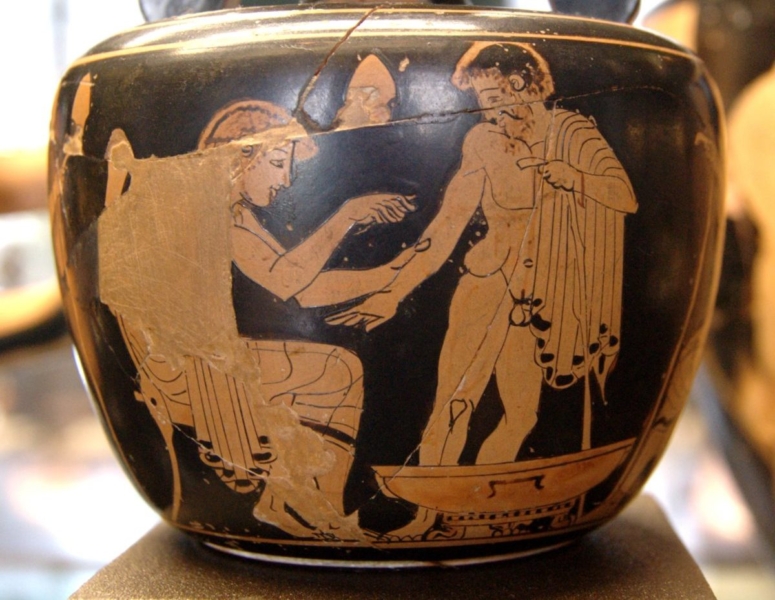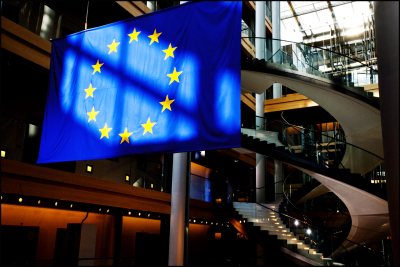Only one thing is certain among the allegations, counter-allegations and rumours that are swirling around EU Home Affairs Commissioner Dimitris Avramopoulos in recent weeks – the truth will not be known for a very long time. As Transparency International has documented time and time again, high-level corruption cases take an unseemly amount of time to work their way through the legal system, something that benefits the guilty more than the innocent. And with 10 Greek politicians named in the documents published last week, including two former prime ministers, this has the makings of a very high-level case indeed.
Avramopoulos has defended himself robustly, decrying the allegations as a politically motivated smear campaign. This could well be true. The dark arts of smearing an opponent with allegations of corruption is at least as old as, well, the ancient Greeks, and the political benefits of an anti-corruption drive are clear to see in modern China, as are the financial benefits in Saudi Arabia.
Nevertheless, the allegations have been serious enough to attract the attention of the US Department of Justice, whose notoriously long arm is now fingering the collar of Novartis, the Swiss company at the heart of the affair. It seems likely that there was some impropriety involved in the procurement of medicines by the Greek state, whatever about the complicity of senior politicians.
And while we will need to wait for a fully independent investigation to establish the facts, one of the interesting things about the allegations so far is their typicality. They have all the hallmarks of what we know about high-level graft in the EU. They are almost a parable of corruption. Consider the following:
The healthcare sector in the EU is highly vulnerable. This is something identified by the Commission as a high-risk sector as part of their plans for a second (now scrapped) EU anti-corruption report. We at Transparency International have been so concerned about this that we have a dedicated programme looking at corruption in the pharmaceutical and healthcare sector, who put out this statement underlining what’s at stake in the Greek case.
Cross-border corporate bribery is alive and well in the Europe. When we think of unscrupulous multinationals bribing foreign officials, we often think of far-flung destinations and developing countries with poor governance. This is only part of the truth. As a recent OECD report on the implementation of an international anti-bribery convention pointed out, two-thirds of bribes are paid to officials in countries whose human development index is medium, high or very high. And much if it is within the borders of the EU/EEA.
The EU Anti-Corruption report (RIP) highlighted the activities of Finnish defence companies in Croatia and Slovenia, and German companies in Portugal and Greece. Now we have a Swiss company allegedly bribing Greek officials. The existence of these kinds of activities has a significant distorting effect on the internal market, and the question is whether the EU has an adequate policy response to that.
Public procurement is the #1 corruption hotspot. This case involves the Greek government procuring large quantities of HIV tests and anti-virals for the health service, and the allegation is that these were systematically overpriced to allow for kickbacks to political figures. As we documented in our assessments of corruption risks in Europe in 2012, this is one of the main mechanisms by which political corruption funds itself in the EU, and we are only beginning to understand and document the scope of this, and develop tools to deal with it.
Whistleblowers are essential to uncover corruption. This case also highlights the need for clear and robust whistleblower protections for those who want to expose corruption and wrongdoing. Some of the allegations seem to have come to light only as a result of people providing crucial information regarding the alleged bribery scheme. However, given the various aspects and jurisdictions it remains unclear what protections are being provided, to whom, and under what jurisdiction. This is why the EU needs to offer protections and legal certainty for potential whistleblowers and law enforcement, by proposing comprehensive EU-wide legislation.




